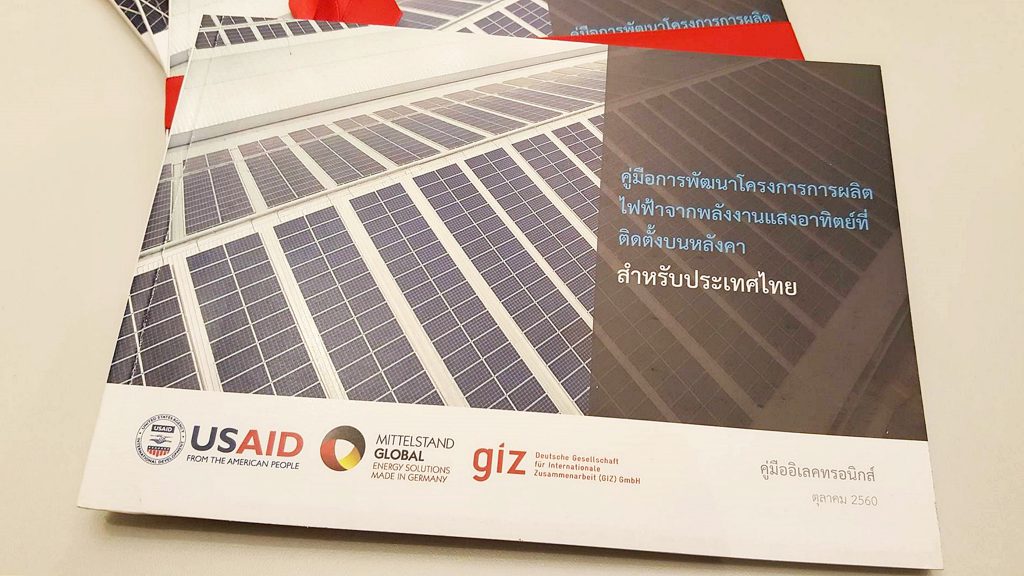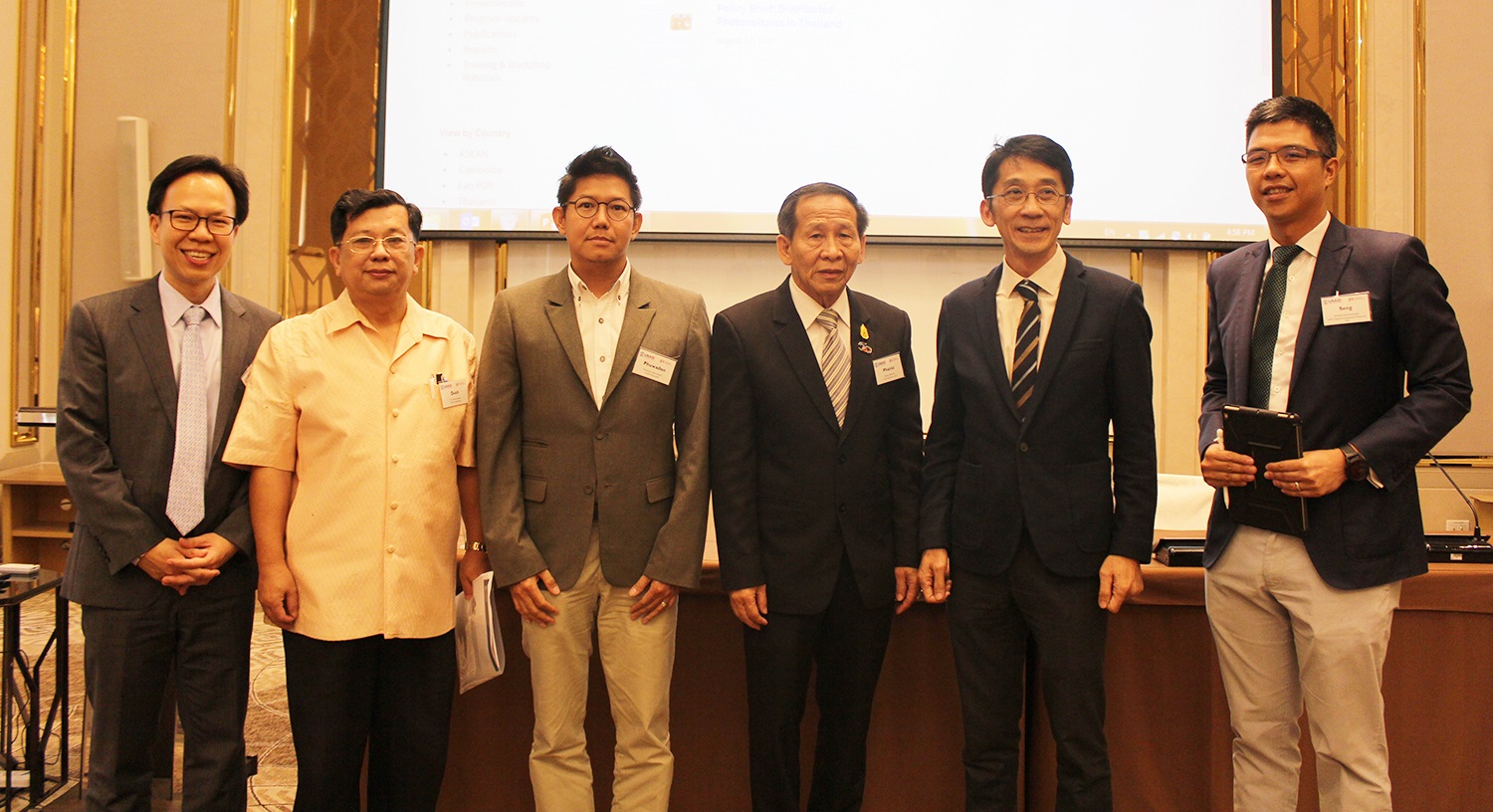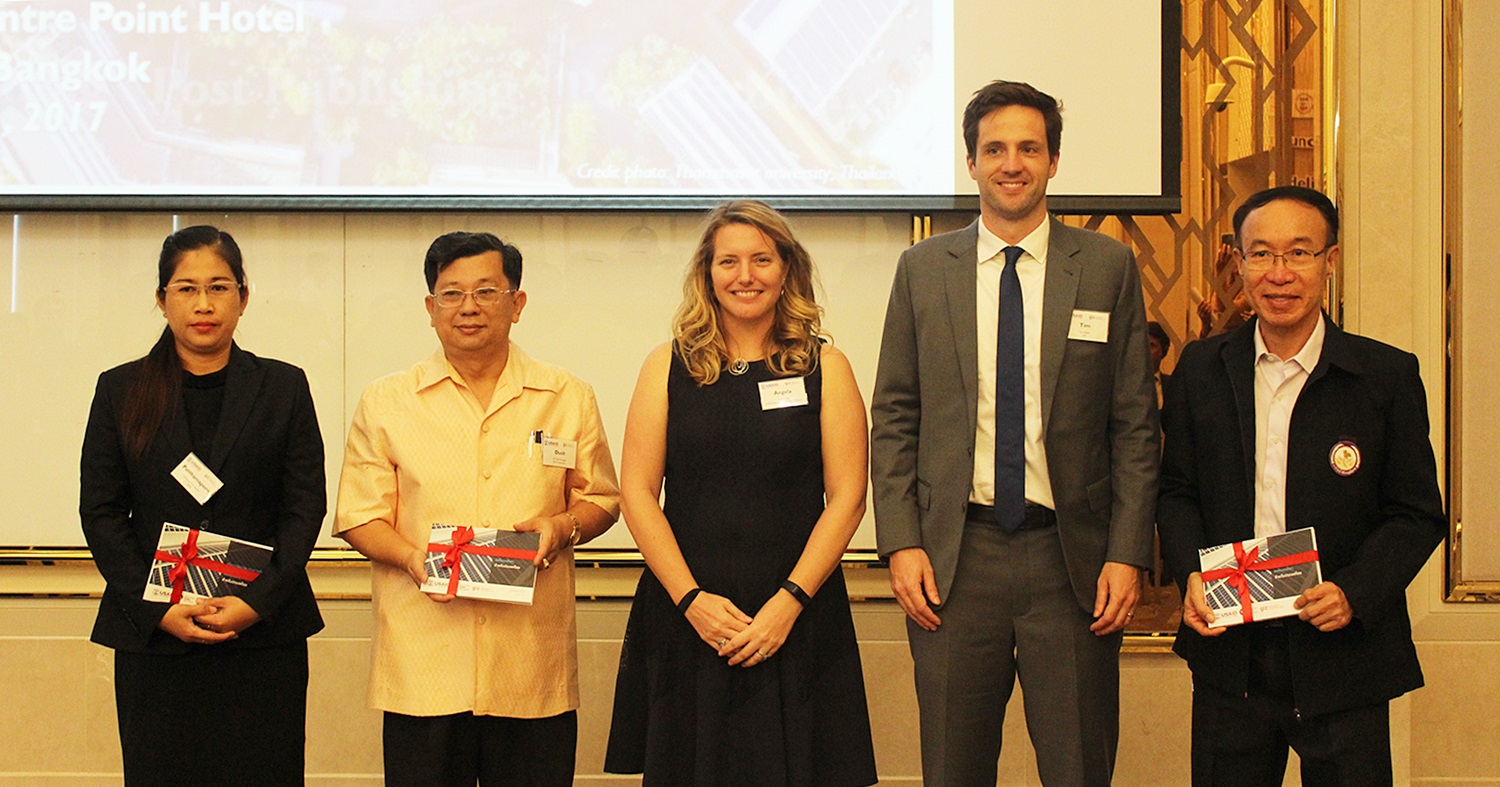The U.S. Agency for International Development (USAID) and the Renewable Energy Project Development Programme in Southeast Asia have provided a set of implementation guidelines to Thailand’s Department of Alternative Energy Development and Efficiency, the Metropolitan Electricity Authority, the Provincial Electricity Authority, the Thai Photovoltaic Industries Association and the private sector to support solar rooftop photovoltaics (PV) deployment in Thailand’s commercial and industrial sectors.
Abundant resources and increasing demand for energy make Southeast Asia a region rich in potential for solar energy, but for many years, solar electricity was considered an expensive alternative energy compared with fossil fuels. Today, solar power is much more affordable. In many countries, an investment in self-consumption pays for itself even without subsidies.
“Renewable energy is essential to sustainable development in Asia, and Thailand is a regional leader in developing and implementing clean power solutions,” said Angela Hogg, Director of the USAID Regional Environment Office. “USAID and GIZ Thailand will continue to collaborate and provide assistance to the public and private sectors in renewable energy development. We hope that they will provide tools to help unlock the solar PV rooftop market in Thailand, resulting in an increase in solar PV rooftop deployment in Thailand and then replicate this in other countries in the region.”
Over the past few years, Thailand has seen an increasing number of commercial and industrial facility owners consider investment in solar PV rooftop as a means to reduce their electricity expenditure, gain access to clean energy and mitigate climate change in Thailand.
“Working closely with end-consumers, project developers and investors in Thailand’s solar market, GIZ identified the need to facilitate the PV rooftop market by creating easy-to-follow, step-by-step implementation guidelines,” said Thomas Chrometzka, Energy Programme Director for GIZ Thailand. “GIZ and USAID joined forces to respond to this need, and this collaboration shows what can be accomplished when donors and implementation agencies work together.”
Solar energy’s market share in power production is growing rapidly and is being driven by industrial and commercial stakeholders. “We are now using solar power to lower our production costs. I was surprised myself, but it simply makes economic sense to go solar,” said Mr. Phairat Ueshooyos, Chairman of Star Aire (Thailand) Co., Ltd during the inauguration event of the company’s first solar power system.
The guidelines can be downloaded at






